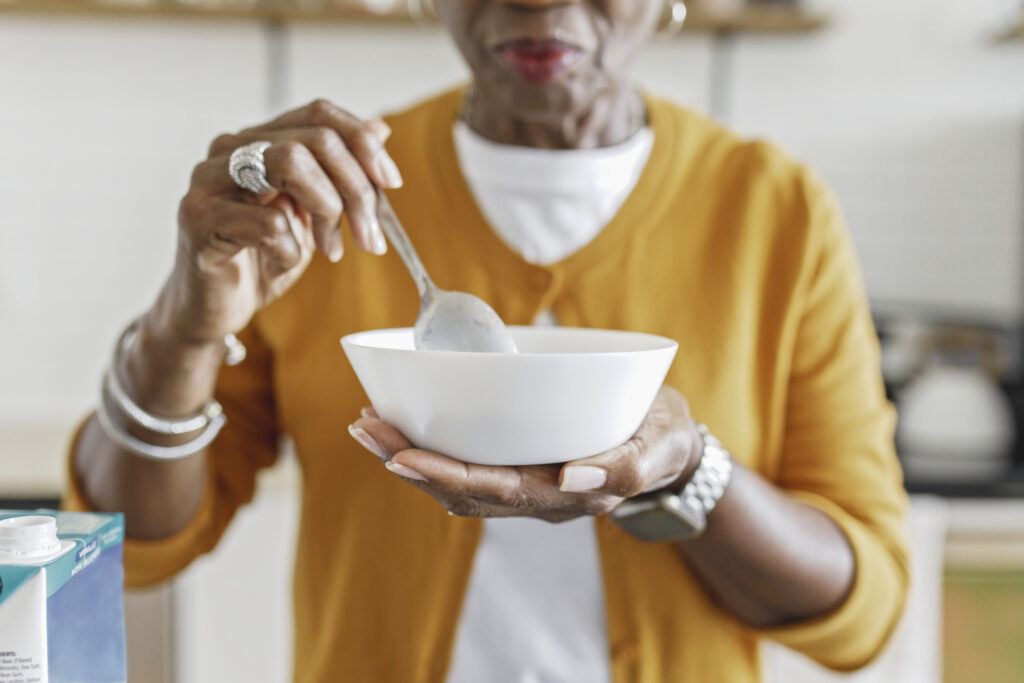Understanding the Changing Nutritional Needs of Seniors
As individuals age, seniors’ bodies experience various physiological changes that can significantly impact their nutritional needs. Understanding these changes is vital in order to create suitable dietary strategies that promote optimal health and well-being among seniors.
This article delves into the physiological shifts that affect the dietary requirements of older individuals, the prevalent health conditions that impact nutritional needs, and the crucial nutrients with recommended daily allowances for seniors.
Physiological Changes and Dietary Requirements
- Metabolism: With age, metabolism tends to slow down, leading to a decrease in the number of calories needed to maintain a healthy weight. Seniors often require fewer calories but must ensure that they still receive sufficient nutrients.
- Muscle Mass: Age-related loss of muscle mass, known as sarcopenia, occurs in seniors. Adequate protein intake becomes vital to maintain muscle strength and prevent muscle wasting.
- Digestive System: The digestive system may become less efficient, resulting in reduced absorption of certain nutrients, such as vitamin B12, vitamin D, calcium, and iron. It is crucial to ensure an adequate intake of these nutrients to prevent deficiencies.
- Sensory Changes: Seniors may experience changes in taste and smell, which can affect their appetite and food preferences. Adjustments in flavors and textures may be necessary to accommodate these changes.
Common Health Conditions Affecting Nutritional Needs
Osteoporosis
Seniors are more susceptible to bone loss, which increases the risk of fractures. Adequate calcium and vitamin D intake are crucial for maintaining bone health. Calcium-rich foods like dairy products, leafy greens, and fortified cereals, along with sufficient exposure to sunlight or vitamin D supplements, can help reduce the risk of osteoporosis-related complications.
Hypertension
High blood pressure is prevalent among seniors. Limiting sodium intake is vital for managing blood pressure levels. Encouraging a diet rich in fruits, vegetables, whole grains, and lean proteins can support blood pressure control. These foods are typically lower in sodium and provide beneficial nutrients like potassium, magnesium, and fiber, which contribute to a healthy cardiovascular system.
Diabetes
Many seniors develop type 2 diabetes, necessitating careful management of blood sugar levels. Controlling carbohydrate intake and opting for low-glycemic index foods can help stabilize blood sugar levels. Balancing meals with a variety of nutrient-dense foods, monitoring portion sizes, and maintaining a healthy weight are crucial aspects of diabetes management for seniors.
Heart Disease
Seniors often face an increased risk of heart disease. Adopting a heart-healthy diet is essential for maintaining cardiovascular health. This involves emphasizing fruits, vegetables, whole grains, lean proteins, and healthy fats while limiting saturated and trans fats. Encouraging seniors to incorporate sources of omega-3 fatty acids, such as fatty fish, flaxseeds, and walnuts, can further support heart health.
Essential Nutrients and Recommended Daily Allowances for Seniors:
- Protein: Seniors should aim for 1-1.2 grams of protein per kilogram of body weight per day to support muscle health and repair.
- Fiber: Adequate fiber intake, around 25-30 grams per day, is crucial for maintaining regular bowel movements and preventing constipation.
- Calcium and Vitamin D: Calcium requirements increase to 1200-1500 milligrams per day to support bone health. Vitamin D aids in calcium absorption, and a daily intake of 800-1000 international units (IU) is recommended.
- Vitamin B12: Due to reduced absorption, seniors may require higher amounts of vitamin B12. A daily intake of 2.4 micrograms is recommended to support nerve function and red blood cell production.
- Omega-3 Fatty Acids: These essential fats help reduce inflammation and support heart health. Consuming fatty fish, flaxseeds, chia seeds, and walnuts can provide a sufficient intake of omega-3 fatty acids.
Building a Balanced and Nutrient-Rich Diet for Senior Loved Ones
Prioritizing Nutrient-Dense Food Choices
- Encouraging the Consumption of a Variety of Fruits and Vegetables: Seniors should aim to include a wide range of fruits and vegetables in their diet to ensure an adequate intake of vitamins, minerals, and antioxidants. Different colors signify different nutrients, so promoting a colorful plate can help seniors obtain a variety of beneficial compounds.
- Opting for Whole Grains and High-Fiber Foods: Whole grains like brown rice, whole wheat bread, and oatmeal provide essential nutrients and dietary fiber. High-fiber foods, including legumes, nuts, seeds, and vegetables, promote healthy digestion, manage blood sugar levels, and support heart health.
- Including Lean Proteins and Healthy Fats in the Diet: Seniors should incorporate lean protein sources such as poultry, fish, eggs, and plant-based proteins like beans and tofu. Healthy fats, such as those found in avocados, nuts, seeds, and olive oil, provide essential fatty acids and support brain health.
- Control Portion and Manage Calorie Intake: Maintaining a healthy weight is important for seniors' overall well-being. Portion control can help manage calorie intake and prevent overeating. Encouraging seniors to listen to their body's hunger and fullness cues, using smaller plates, and avoiding excessive snacking can contribute to maintaining a healthy weight.
The Importance of Hydration and Ways to Ensure Adequate Fluid Intake:
Seniors are prone to dehydration due to age-related changes in their thirst sensation. It's crucial to emphasize the importance of hydration and provide strategies for ensuring adequate fluid intake. These strategies may include:
- Drinking water throughout the day: Encourage seniors to have a water bottle or glass of water readily available and remind them to take regular sips.
- Consuming hydrating foods: Foods with high water content, such as fruits (watermelon, oranges) and vegetables (cucumbers, lettuce), can contribute to overall hydration.
- Limiting diuretic beverages: Encourage seniors to reduce the consumption of diuretic beverages like caffeinated or alcoholic drinks, as they can contribute to fluid loss.
- Offering flavored water or herbal tea: Adding a slice of lemon, cucumber, or a splash of fruit juice to water can make it more appealing. Herbal teas can provide hydration while offering a variety of flavors.
- Monitoring urine color: Educate seniors to check their urine color regularly; a pale yellow color indicates proper hydration.
Addressing Specific Nutritional Concerns for Seniors
Ensuring optimal health and well-being for seniors necessitates addressing their unique nutritional concerns. Key areas to consider include chronic conditions, digestive health, and the potential benefits of dietary supplements. By paying attention to these aspects, we can guarantee that seniors receive the essential nutrients required to support their overall health and enhance their quality of life.
Chronic Conditions
- Heart Health: Seniors can promote heart health by following a low-sodium diet. Reducing salt intake and opting for fresh, whole foods can help manage blood pressure levels and reduce the risk of cardiovascular diseases.
- Diabetes: Seniors with diabetes need to control their blood sugar levels. A balanced diet with portion control and healthy carbohydrates, such as whole grains, fruits, and vegetables, can help regulate blood sugar levels effectively.
- Bone Health: Adequate intake of calcium and vitamin D is essential for seniors to maintain strong bones and reduce the risk of fractures. Dairy products, leafy greens, and fortified foods are excellent sources of calcium, while sunlight exposure and vitamin D supplements can ensure sufficient vitamin D levels.
Digestive Health
- Fiber: Seniors should include fiber-rich foods in their diet to improve digestion and prevent constipation. Whole grains, fruits, vegetables, and legumes are excellent sources of dietary fiber.
- Probiotics: Beneficial bacteria found in fermented foods like yogurt, kefir, and sauerkraut can support gut health and digestion in seniors. Including these probiotic-rich foods can promote a healthy digestive system.
- Hydration: Staying hydrated is crucial for optimal digestion. Seniors should aim to drink enough water throughout the day and consume hydrating foods like soups, fruits, and vegetables to support digestion and overall health.
Dietary Supplements
- Vitamin B12: Seniors may experience reduced absorption of vitamin B12, taking supplements or fortified foods necessary to meet their requirements for nerve function and red blood cell production.
- Omega-3 Fatty Acids: Fish oil supplements or foods rich in omega-3 fatty acids, such as fatty fish, flaxseeds, and walnuts, can support heart and brain health in seniors.
- Calcium and Vitamin D: Supplements can help seniors meet their calcium and vitamin D needs for maintaining bone health, especially if dietary sources are insufficient.
Overcoming Challenges and Cultivating Healthy Eating Habits in Seniors
Promoting healthy eating habits among seniors is essential for their overall well-being and quality of life. However, seniors may face various challenges that can hinder their ability to maintain a nutritious diet.
Promoting Enjoyable and Social Mealtime Experiences for Seniors

Mealtime should be a pleasurable and social experience for seniors. Encouraging them to eat with friends or family members can enhance their enjoyment and foster a sense of community. Creating a warm and inviting atmosphere, such as setting a beautifully arranged table or playing soft music, can also make mealtime more appealing.
Modifying Recipes and Adapting Meals to Suit Specific Dietary Needs
Seniors often have specific dietary requirements due to health conditions or age-related changes. Modifying recipes and adapting meals to meet these needs is crucial. For example, reducing sodium, using healthier cooking methods like baking or grilling, and incorporating a variety of colorful fruits and vegetables can improve nutritional value without sacrificing taste.
Collaborating with Healthcare Professionals and Registered Dietitians for Personalized Guidance
Consulting with healthcare professionals and registered dietitians can provide valuable guidance tailored to seniors' individual needs. They can assess nutritional requirements, identify any deficiencies, and recommend appropriate dietary adjustments. This personalized approach ensures that seniors receive the right support to maintain a healthy diet.
Assisting with Meal Planning, Grocery Shopping, and Food Preparation for Convenience
Many seniors face challenges related to meal planning, grocery shopping, and food preparation. Providing assistance in these areas can significantly ease the burden. Caregivers, family members, or community programs can help seniors plan meals, create shopping lists, and even offer assistance with grocery shopping or meal delivery services.
Addressing Appetite Changes and Loss of Taste by Exploring Creative Solutions
Seniors may experience appetite changes or a loss of taste, which can impact their desire to eat. Creative solutions can help overcome these challenges. Experimenting with different flavors, spices, and textures can make meals more appealing. Additionally, smaller, more frequent meals and nutrient-dense snacks can help meet nutritional needs even when appetite is reduced.
Supporting Well-being and Nutrition in Seniors
- Encourage Suitable Physical Activity: Promote regular physical activity that suits their capabilities, such as gentle exercises or walks.
- Prioritize Mental Well-being: Engage seniors in activities they enjoy to reduce stress and enhance cognitive function.
- Recognize Signs of Malnutrition: Stay vigilant for signs of malnutrition and seek professional help when necessary.
- Practice Mindful Eating: Encourage mindful eating habits and enjoy meals together for a positive and social experience.
- Celebrate Milestones: Acknowledge and celebrate seniors' achievements in their nutrition journey.
In conclusion, nurturing optimal health and nutrition in senior loved ones requires a comprehensive approach. Understanding the changing nutritional needs of seniors is crucial for developing suitable dietary strategies. By addressing physiological changes, common health conditions, and essential nutrients, we can ensure seniors receive the proper nourishment. Supporting overall well-being involves encouraging physical activity, prioritizing mental well-being, recognizing signs of malnutrition, practicing mindful eating, and celebrating milestones. Through these efforts, we can promote health, happiness, and quality of life for our senior loved ones.





